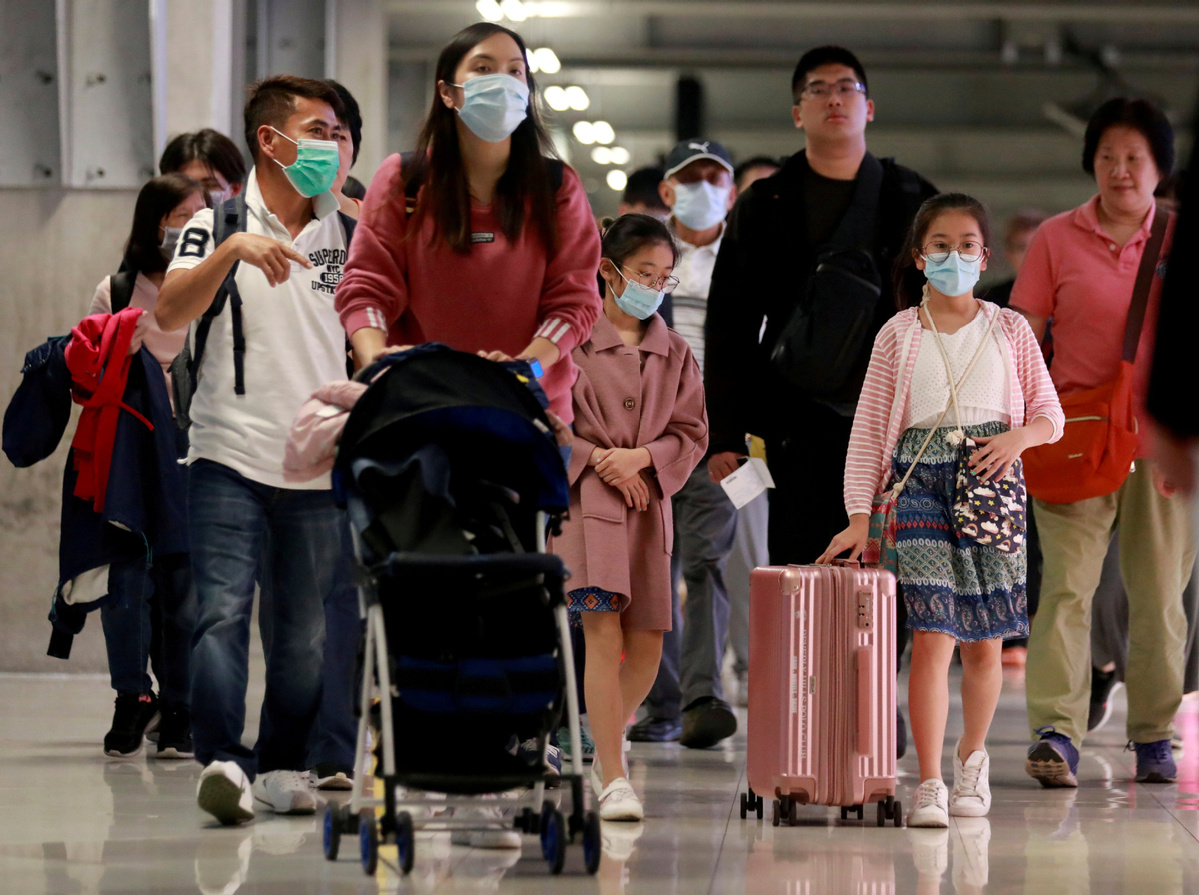Thai tourism to benefit from Chinese visitors
By KARL WILSON in Sydney | China Daily Global | Updated: 2020-10-13 10:18

Despite postponements of tourist arrivals, Thailand hopes visitors from China will help kick-start its battered tourism sector, which has been decimated by travel bans due to the COVID-19 pandemic.
The immediate reason for optimism in the Thai tourism sector is a special charter flight that will take 150 Chinese tourists from Guangzhou, Guangdong province, to the Thai resort island of Phuket after Oct 25, instead of Oct 8 as originally scheduled.
They will be the first foreign tourists allowed into Thailand on special tourist visas under a conditional entry program for selected groups of foreigners endorsed by the government.
Pipat Ratchakitprakarn, Thailand's minister of tourism and sports, said on Oct 7 that the tourists would fly directly to Phuket on a chartered AirAsia flight. Thailand's National Security Council Secretary-General Natthaphon Nakpanit later confirmed that tourists would only arrive in Phuket after the annual vegetarian festival, from Saturday to Oct 25.
Phuket Governor Narong Woonciew said on social media that he had decided to delay the arrival of tourists out of concern that local residents may fear going outdoors to celebrate the festival if foreign tourists are present.
The tourism minister also said another group of 126 Chinese tourists, also from Guangdong, will fly into Suvarnabhumi International Airport in Bangkok on a chartered Thai Smile flight. They will be followed by tourists from Europe.
Thailand's tourism industry has recorded exponential growth in recent years, largely due to the influx of tourists from the Chinese mainland. But the pandemic has decimated tourism, not only in Thailand but worldwide, with airlines grounded and many national borders closed.
Michael Langham, senior Asia country risk analyst for Fitch Solutions, said Thailand's economy is highly dependent on tourism.
He said tourist receipts account for around 13 percent of gross domestic product, and combined tourism and travel accounted for around 22 percent of GDP last year. "Of this, Chinese tourists are by far the most significant for Thailand, accounting for 27.6 percent of arrivals and 28.1 percent of tourist receipts," he said.
Sandra Seno-Alday, a lecturer at the University of Sydney Business School, said that before the pandemic, Thailand had a large and successful tourism sector.
"The Thai government's response to the pandemic, however, has been robust and widely praised," she said.
Rajiv Biswas, the Asia-Pacific chief economist for global consultancy IHS Markit, said the pandemic has "become an extreme 'black swan' event for the Asia-Pacific tourism industry, with international travel across the region having collapsed due to travel bans on foreign tourist arrivals by most Asia-Pacific governments, including in Thailand." The term "black swan" refers to an unexpected situation with potentially severe consequences.
Fitch Solution's Langham said Thailand's economy is likely to struggle to recover quickly, particularly given delays in the resumption of global tourism.
He said Thai authorities are eager to diversify the economy, but such reforms and investment will take time.
Thailand has kept coronavirus infections low, with 3,559 cases and 59 deaths, but the nation's economy has taken a hit from a ban on foreign visitors since April. The travelers now permitted to enter Thailand will be from countries deemed low-risk by the government.
"We are not opening the country, we are limiting the number of entries and will manage with wrist bands, apps (to track the tourists)," Prime Minister Prayuth Chan-ocha told journalists at a media briefing last month.
The government predicts just 6.7 million foreign visitors this year, compared with a record 39.8 million in 2019.
Visitors to Thailand need health insurance and must produce a certificate for a negative coronavirus test done 72 hours before traveling to the country. They will be tested twice while in quarantine for 14 days.
"Thailand's protection system can prevent a second wave," a spokeswoman for the government said.
Chairat Trirattanajarasporn, president of the Tourism Council of Thailand, told a briefing last month that foreign tourist receipts are forecast to reach 4.5 billion baht ($144.4 million) in the final quarter of this year, down 99 percent year-on-year.
The council predicted that foreign tourist numbers this year will be down 83 percent from a year ago.
According to Biswas at IHS Markit, Thailand has been one of the most notable beneficiaries of the boom in Chinese tourism over the past decade. He said Chinese tourist visits to Thailand rose from 2.7 million in 2012 to 11 million last year.
"Chinese tourism has played an increasingly important role in underpinning the Thai tourism economy.
Xinhua and Yang Han in Hong Kong contributed to this story.
























